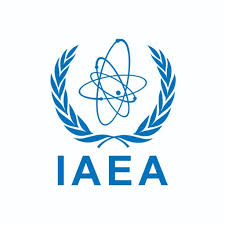Morocco becomes first nuclear institution in Africa to work with IAEA
Radiation techniques are some of the most environment-friendly and cost-effective methods available in several research areas, which explains their growing popularity in the industry.

- Country:
- Morocco
Morocco’s National Center for Energy and Nuclear Science and Technology (CNESTEN) has become the first nuclear institution in Africa to work with the IAEA in more than one field of nuclear applications as a Collaborating Centre.
By signing an agreement last week, the two organizations are expanding their cooperation from water resource management to environmental protection and industrial applications.
“The IAEA and CNESTEN will work together to enhance national capabilities of IAEA Member States in applying radioisotopes and radiation-based techniques to support cleaner and safer industrial process management,” said Najat Mokhtar, IAEA Deputy Director General and Head of the Department of Nuclear Sciences and Applications, during the signing ceremony held virtually this week.
Radiation techniques are some of the most environment-friendly and cost-effective methods available in several research areas, which explains their growing popularity in the industry. The work of the two organizations will focus on the use of non-invasive nuclear techniques, such as non-destructive-testing, radiotracers and sealed sources applications.
In the field of water resource management, the IAEA and CNESTEN will join efforts to promote the use of isotope hydrology tools both in Morocco and in the wider region including Africa and the Middle East. This involves establishing collaboration agreements with African institutions, which have a mandate in water resource management, as well as conducting training in analytical methods and applications of geochemical and isotope tools.
“The scientific and technical cooperation between CNESTEN and the IAEA has enhanced the use of nuclear technology in Africa. In the context of climate change and Africa’s growing population, nuclear applications will play even more important role in achieving greener industry, better environmental protection and improved availability and quality of water,” said Khalid El Mediouri, Director General of CNESTEN.
CNESTEN was first designated as an IAEA Collaborating Centre in 2015 and has since then supported the IAEA’s activities in water resource assessment and management by:
conducting hydrological studies addressing key water availability and quality issues related to various aquifers and basins across Morocco;
providing training to more than 60 IAEA Technical Cooperation counterparts in Africa;
participating in IAEA-led proficiency tests;
carrying out thousands of isotope analyses used in national hydrological studies and IAEA-supported projects.
ALSO READ
IAEA Head Grossi Visits Paraguay to Strengthen Nuclear Science Cooperation for Development
IAEA Advances Human Resource Development for Sustainable Nuclear Power Expansion
IAEA Launches New Regulatory Infrastructure Development Project to Boost Radiation Safety and Nuclear Security in Asia-Pacific
IAEA Raises Concerns Over Risks to Ukraine’s Nuclear Safety Amid Energy Infrastructure Attacks
IAEA Expands Radiation Emergency Preparedness Training with Spanish-Language School in Buenos Aires










